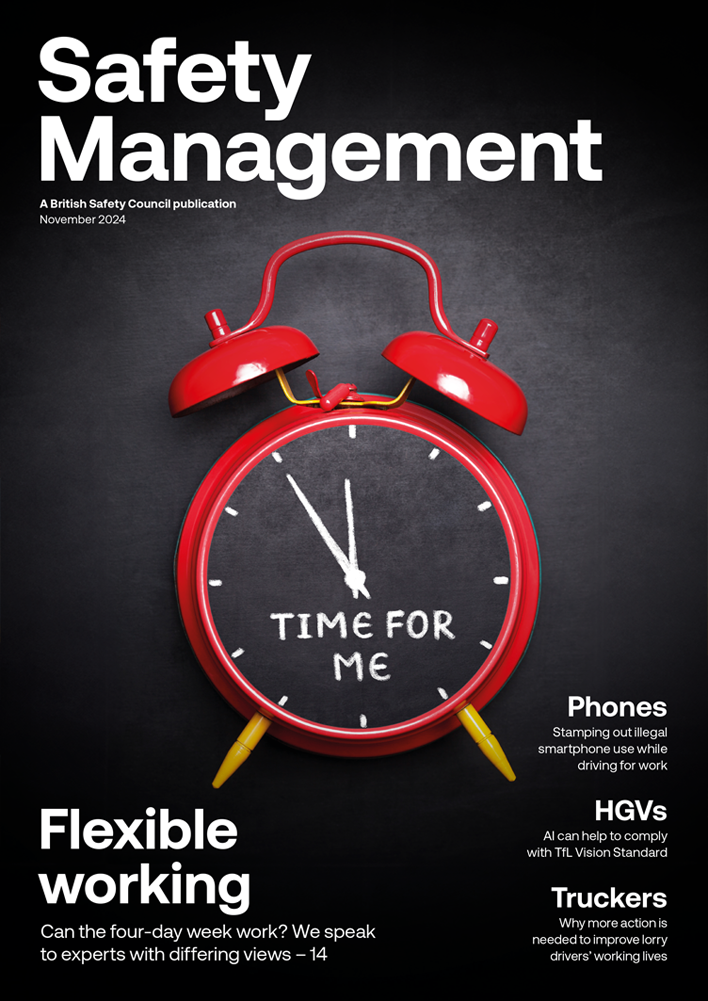Guidance has been published to make it easier to communicate the essential messages for safe working at height to designers, clients, managers, supervisors and workers.
Features
A step up
The Access Industry Forum (AIF), in partnership with the Construction Industry Advisory Committee (CONIAC), is pleased to introduce a series of practical work at height documents called Safety Steps – free to download from: accessindustryforum.org.uk
Safety Steps is a series of documents aimed at five key work at height audiences:
- Designers
- Clients
- Managers
- Supervisors
- Operatives.

Safety Steps clearly explains – for everyone involved in the stakeholder chain – what they need to know about safe working at height, all in one easy-to-access, easy-to-use resource. It can be used freely – in whole or part – to help produce any type of output for the five target audiences shown above, such as:
- Training materials
- Flow charts/infographics
- Toolbox talks/checklists
- Poster/sticker campaigns
- Social media campaigns
- Rules and guidelines
- Articles.
The Safety Steps series contains general, rather than task-specific, messages. They don’t, for example, provide information about specific situations – such as the use of scaffolding or mobile work platforms, or working on roofs – but they do provide essential messages that underpin any type of work at height activity.
The aim of the series is to avoid the need for those involved in work at height to have to continually redefine or seek out resources to provide them with the key messages they need to ensure safe work at height. Safety Steps provides these messages in one place, making it a hugely valuable, long-term reference point for industry.
A great starting point for anyone involved in work at height is the General Guidance, a brief and easily understood summary of the general principles of safe working at height. Thereafter, it’s recommended to download the role-specific guidance as required.
About the AIF
The AIF provides a forum for all 10 principal trade associations and federations involved in work at height; ATLAS, EPF, FASET, IPAF, IRATA, the Ladder Association, NASC, PASMA, SAEMA and WAHSA. Its member organisations each represent a different sector of the access industry and are recognised authorities in their respective fields. All members of the Forum are standards-driven and committed to advancing safety, best practice and competency when working at height, irrespective of the equipment type or safety solution.
The AIF actively supports the work of the All-Party Parliamentary Group on Working at Height, which aims to shine a light on the reasons for falls from height in the workplace and propose effective, sensible measures to reduce this toll and send people safely home from work.
The AIF also supports the No Falls Foundation, the first and only UK-based charity devoted exclusively to the work at height sector. The Foundation is dedicated to preventing falls from height and helping people affected by the life-changing consequences of a fall through education, research and support.
Download Safety Steps at:
accessindustryforum.org.uk
FEATURES

Winter pressures mean good mental health support is crucial
By Kevin Bampton, British Occupational Hygiene Society on 01 December 2021
I will tell anyone who cares to listen that winter 2020/2021 was a historic moment in British social and economic history. British business became, for the first time ever, my public health hero.

The big sleep
By Marcus Herbert, British Safety Council on 01 December 2021
Poor quality sleep can affect both our physical and psychological wellbeing, but simple lifestyle changes can make a big difference.

Why changes to recycling legislation in England are an opportunity, not a burden
By Adriana Olaya Rodriguez, Newell Brands on 12 November 2024
From March 2025, many businesses in England will have to begin separating their recyclable and food waste from general waste prior to collection, but the changes will bring wider business benefits, such as reduced waste disposal costs and improved sustainability credentials.



